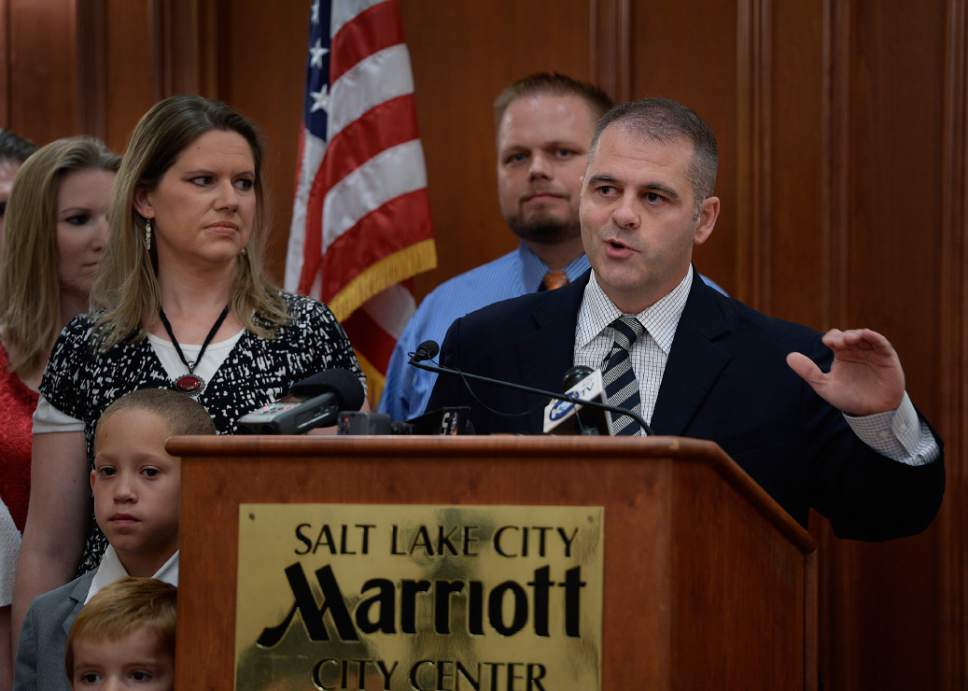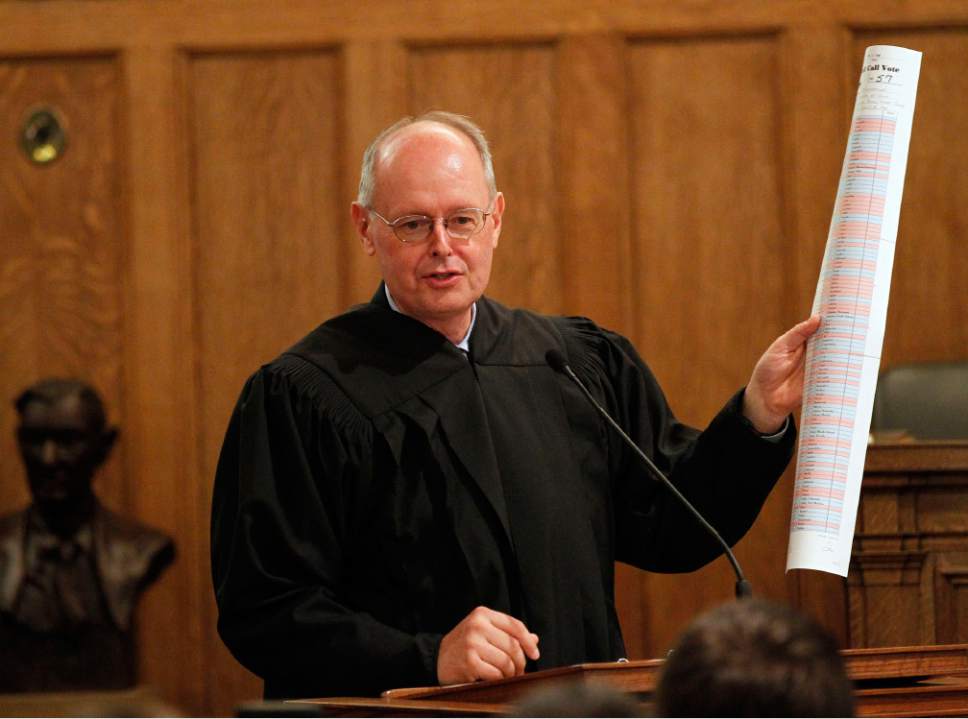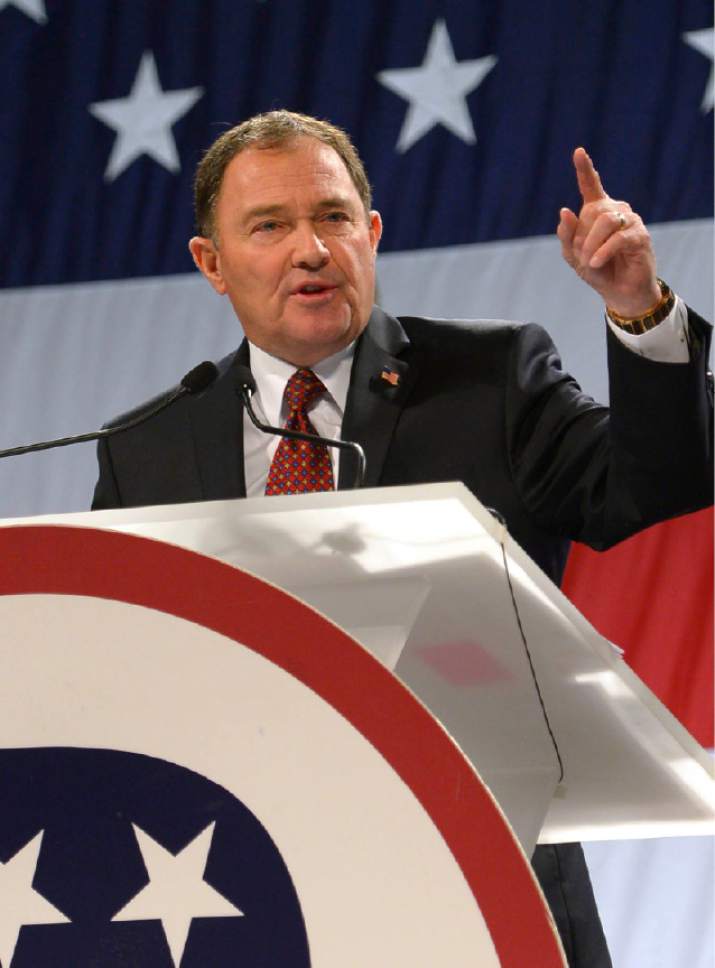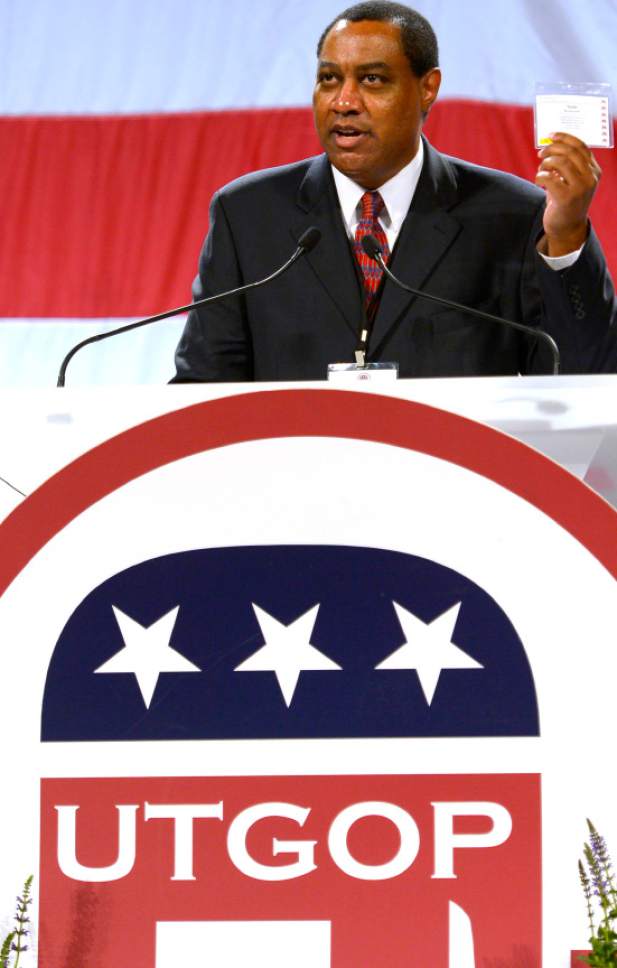This is an archived article that was published on sltrib.com in 2015, and information in the article may be outdated. It is provided only for personal research purposes and may not be reprinted.
A federal judge said Thursday he wants the Utah Republican Party to offer a concrete case for why a deal cut last year to change how candidates for political office are chosen violates the U.S. Constitution and should be stopped from being implemented.
U.S. District Judge David Nuffer said he wants attorneys for the party to be able to point directly to the Constitution or legal precedent to show why specific lines and provisions of the deal legislators cut with Count My Vote — a group formed to push a ballot measure to change the nominating process — violate the law.
Marcus Mumford, the attorney for the party, will argue Friday that the Legislature infringed on the GOP's right to choose candidates as it sees fit when it passed SB54, which allows candidates to get on a primary election ballot and get a shot to win the party's nomination by gathering enough signatures, rather than being chosen by delegates at the party's conventions.
"I am frustrated that everyone talks about Senate Bill 54 as a compromise, but I've never been able to get anybody to answer the question: a compromise between who and of what?" Mumford said in court Thursday. "It's a compromise between the state and Count My Vote … of our rights."
The Republican Party is asking Nuffer to block the law's implementation, contending that going forward with the SB54 framework would irreparably harm the party. And it won't have to wait long for a decision.
"I intend to rule from the bench at the end of [Friday's] hearing," Nuffer said during a short hearing Thursday.
Nuffer seemed to express skepticism about some of the contentions raised by the Republican Party and said he expected to see more detailed support Friday.
"I have not read anything yet that supports the generalized impingement of association argument you're making," Nuffer said. The judge said he wants to see cases cited that would support the claim that, by dictating how candidates can be nominated, the state overstepped its bounds and denied the party its First Amendment rights.
Nuffer ruled late Wednesday that Republican Gov. Gary Herbert and Sen. Curt Bramble, R-Provo, who sponsored SB54, will not have to testify at Friday's hearing. A ruling will come later on whether they will have to provide depositions and documents in response to a subpoena from the Utah GOP's attorneys.
Count My Vote was formed by former Republican Gov. Mike Leavitt and other community leaders who contended that the current system — in which delegates elected at neighborhood-caucus meetings then choose nominees at party conventions — disenfranchised average voters and resulted in candidates outside the mainstream.
The group launched a ballot initiative that, if approved by voters, would have allowed office-seekers to gain a spot on the primary ballot by collecting a set number of signatures. It abandoned the effort after cutting a deal with legislators to enact a hybrid system.
Under SB54, candidates can be chosen by delegates at convention to get a spot in the primary, or they can gather signatures and go directly to the primary. The change was approved by the Republican-dominated Legislature and signed by the GOP governor. It is due to take effect next year.
The Utah Republican Party, in an unusual move, sued Herbert and other Republican officeholders, saying the deal strips the party of the ability to choose its own candidates and control its brand.
The state's Constitution Party has joined the lawsuit, contending that, especially for smaller parties with few members, the signature-gathering route opens the door to outsiders co-opting the party and winning the nomination, even though the candidate may have no support from party members.
Twitter: @RobertGehrke









